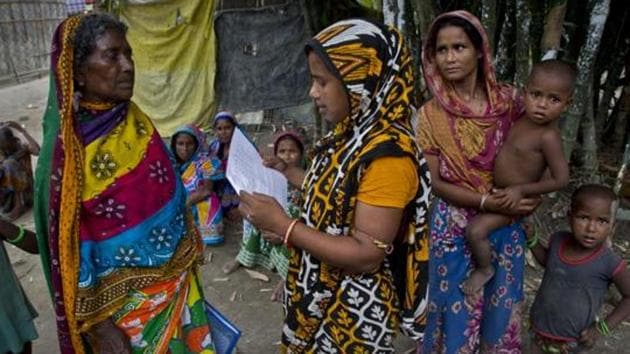A case for posthumous citizenship for NRC victims
How precious it is for someone to belong somewhere, that the humiliation of “unbelonging” empties their desire to live. Even when he was sure that he will end his life, he wanted to be remembered as a citizen, not as someone illegal.
The conditions in which inmates find themselves in the six detention camps in Assam speak volumes for our apathy towards suffering and the erosion of someone’s right to have rights. The psychology that guides the National Register of Citizens (NRC) process tells us how people rationalise such a process despite the conditions around it being inhumane. How long will the suffering of the 1.9 million people continue, or have we relegated them to being “permanent aliens”?

Kharka Bahadur Gurung, 71 years old at the time of his death, was a resident of Bilbasti village in Chunpura, Sadiya, a subdivision in Tinsukia district in Assam. He committed suicide last year because he was scared that he will be sent to jail for five years with a hefty fine to pay. His son, Ranjan Gurung, mentioned that his father was informed by NRC officials in Sadiya that he used the wrong legacy data, because of which he would be penalised.
The kind of disinformation that spread in the media about the NRC also added to his anxiety. The recent Avaaz report on the failure of Facebook to flag hate speech shows how the victims of NRC find themselves being seriously targeted in different spaces.
Ranjan recalls how, before the day his father took his life, he had an argument with his grandson and forced the small child to turn off the TV news on the NRC that he was watching. Kharka Bahadur’s son and wife recall how they tried to console him that using the same legacy data, his entire family is being included. So, his too would see the light of day. However, he was not convinced.
Kharka Bahadur is one among many people who have committed suicide in Assam, unable to bear the social pain of the NRC process.People who are declared illegal suffer from a civil, political and social death. These deaths impact the lives of their families.
There are other kinds of death which are related to the NRC. Dulala Chandra Paul, a 65-year-old from Alisinga village, Sonitpur district, passed away in Guwahati Medical College on October 13, 2019. Paul was admitted to the hospital due to his deteriorating health. At the time of he was admitted, he had spent two years in a detention centre. He was declared a foreigner in an ex parte judgment. Until March 2019, there have been 63,959 cases of people being declared foreigners through ex parte judgments.
Falu Das, a 70-year-old man passed away in the same month, and for four days, his family members did not accept his body until their demands were met. They asked for him to be declared a citizen. Similarly, Dulal Chandra Das’ family also accepted his body when two ministers from Assam government assured that legal aid will be provided to Paul’s family to prove his citizenship.
Nazrul Islam, barely two months old, whose mother Sahida Bibi was declared foreigner in an ex parte order in 2011, died when she was in detention. Sashi Mohan Sarkar, 84-years-old also died in a detention centre in Goalpara in December, 2018.
Over 1,000 people are being kept in detention centres in Assam, and in the past three years, 24 of them died in these places. The reason cited for their deaths is simply “illness”.
There are other families too, who refused to take back the bodies of those who died in detention centres. Can we show some empathy to the dead? Is posthumous citizenship possible?
Kharka Bahadur’s wife, Sashi Kala Gurung mentioned, that her husband left a note under his pillow. He asked them to attend his hearing. He arranged his documents in a folder, before he stepped out for the last time from his room, only to hang himself from a tree near the Balijan river. How tragic it is that the humiliation of “unbelonging” makes people lose their will to live. Even when he was sure that he would end his life, he wanted to be remembered as a citizen, not as someone illegal.
Posthumous citizenship is not unheard of and perhaps is the only way to ease the pain of the victims and their families who have been taken through trauma, terror and loss. The case of Lance Corporal Jose Gutierrez, an undocumented immigrant from Guatemala, who died in a tank battle outside Umm Qasr in Iraq in 2003 is a case in point. There are many undocumented immigrants who serve in the army. Gutierrez’s death led both conservative and liberal lawmakers to pass a bill to grant these soldiers and their spouses’ posthumous citizenship. The year the Assam Accord was signed in 1985, the Israel government granted posthumous citizenship to all the six million victims of the Holocaust.
Posthumous citizenship is not a solution to the problems that the NRC has created. It is a small step — a beginning — to help the victims whose lives have been lost due to the process.
Suraj Gogoi is a doctoral candidate in Sociology at National University of Singapore. He tweets @char_chapori
The views expressed are personal



